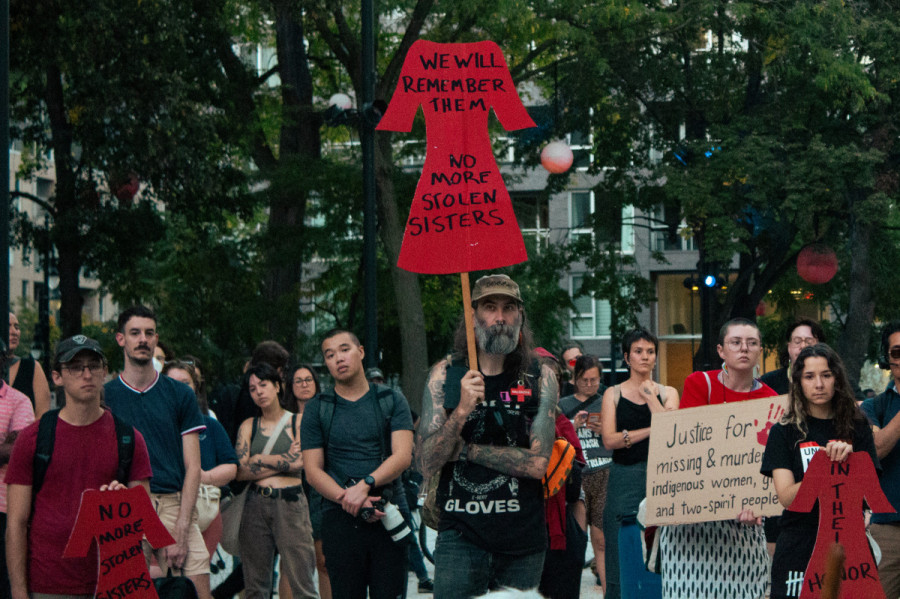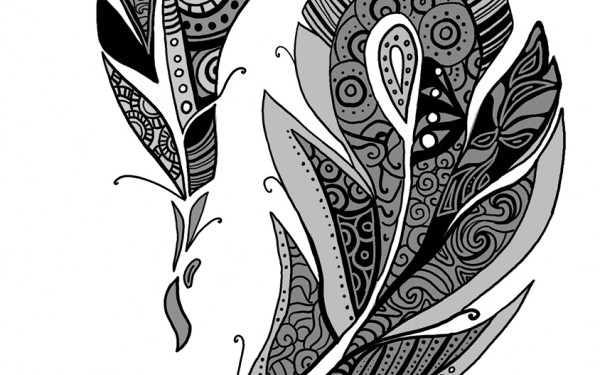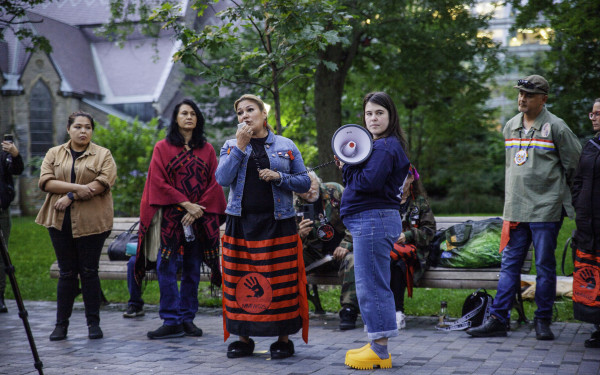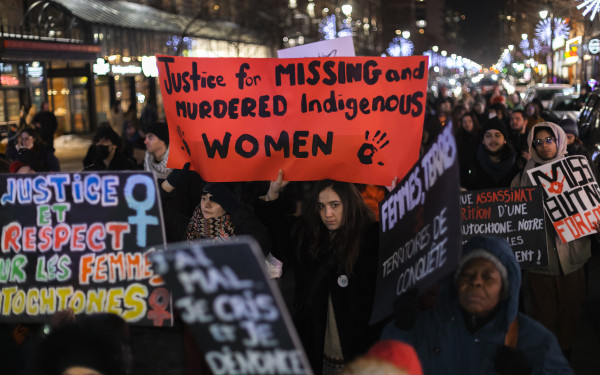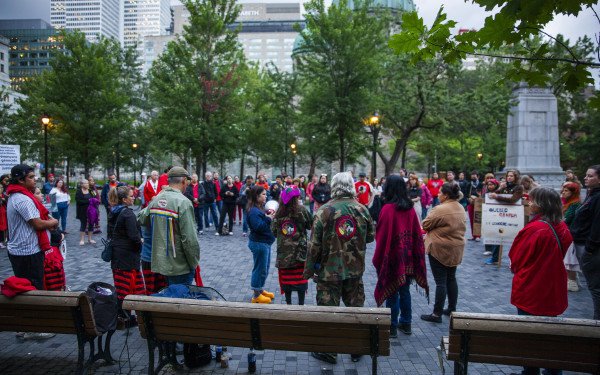18th annual MMIWG2S+ vigil calls for justice and healing
Montrealers marched in support of those who never came home while demanding concrete governmental action
On the evening of Oct. 4 at Cabot Square, Indigenous Peoples and supporters attended the 18th edition of the vigil for Missing and Murder Indigenous Women and Girls. This event was held in honour of Indigenous women who never returned, asking for justice and healing.
The vigil began with the sound of the drums and the chant of the Travelling Spirit drum group. Elder Delbert Sampson was the first speaker of the night. He opened with words of healing and reconciliation while paying homage to the women and girls who never came home. His healing words allowed the speakers to be vulnerable and share their stories.
Sarah Carrier was the first woman of the night to share her story, and the pain she’s been carrying due to the lack of governmental action. Carrier expressed her frustration: “These commissions and reports [continue to] happen but don't lead to change or meaningful action.”
During her speech, Carrier doubled down her support for those whose voices broke when talking about their lost loved ones and shared her frustration by asking the government for recognition, reconciliation and funding for Indigenous services. “Thanks for talking, but can you do more?” said Carrier.
Earlier this year, the Iskweu Project, a branch of the Native Women’s Shelter, launched a project titled Mapping the Reality of Missing and Murdered Indigenous Women, Girls and 2SLGBTQ+ People in Quebec. In collaboration with the Quebec Native Women group and the Université du Québec en Outaouais, the project will aim to raise awareness of the crisis. through a mix of community interaction and archival research. The project hopes to map out every case they hear of to keep steady track of the MMIWG2S+ situation in the province.
During the vigil, attendees collectively shared their pain.
“I don’t want them just to see our pain; I want them to see our resilience,” said Stéphanie Iancy Brazeau. Brazeau, an Indigenous dancer, shared her experience in foster care. Brazeau was one of the many children taken from her family. She returned to her community when she was 18 years old. Her cousin Jenny had also been murdered in 2002 around her Anishinaabe community of Lac-Simon in Abitibi, Que.
“This dance is for you and for her,” Brazeau paid tribute to her cousin before starting her performance.
Candles were lit, posters were held high, and voices were loud. “I want to show we are still alive; we are not dead,” said Jenne Steveson, one of the night's speakers.
Steveson expressed her feelings on Quebec’s lack of action. She shared how hurtful it is that the province proudly and loudly points out they are located on stolen land but chose not to acknowledge any Indigenous efforts for justice. Steveson continued by stating her frustration on having to continue to reunite to ask for justice: “We are being hurt, and nothing is being done.”
Following Stevenson, two Indigenous women shared their experiences and told the story of many people they lost. They shared their fears of being murdered or going missing themselves, as many family members have. The last speaker, Angela Ottreyes, an Indigenous woman who has been a victim of the Quebec judicial system and has lost many family members, closed the night. She voiced her worries and asked to look for her if she ever went missing.
“Find my body, and give my children peace,” said Ottreyes.
Indigenous women represent 10 per cent of the total population of missing women in Canada, while Indigenous people account for five per cent of Canada’s total population. Indigenous women are also six times more likely to be victims of homicide than non-Indigenous women.
Laura Aguiar, one of the coordinators of The Native Women’s Shelter of Montreal, was present at this event. She told The Link that “the Quebec government is saying they are not committed to moving forward on a path of reconciliation with Indigenous folks.”
In 2019, the National Inquiry into Missing and Murdered Indigenous Women and Girls published a supplementary report on Quebec and details 21 recommendations. Tackling issues of “language barriers, health and social services provided by religious congregations and interaction with Indigenous and provincial police forces,” the report finds that, in its 85 testimonies, the victims experienced violence and discrimination within Quebec society, its public institutions, and its government.
“Our message is the same: the violence needs to end,” added Aguiar, “these families need justice. It will be the same until we see there are no more Missing and Murdered Indigenous Women and Girls."

